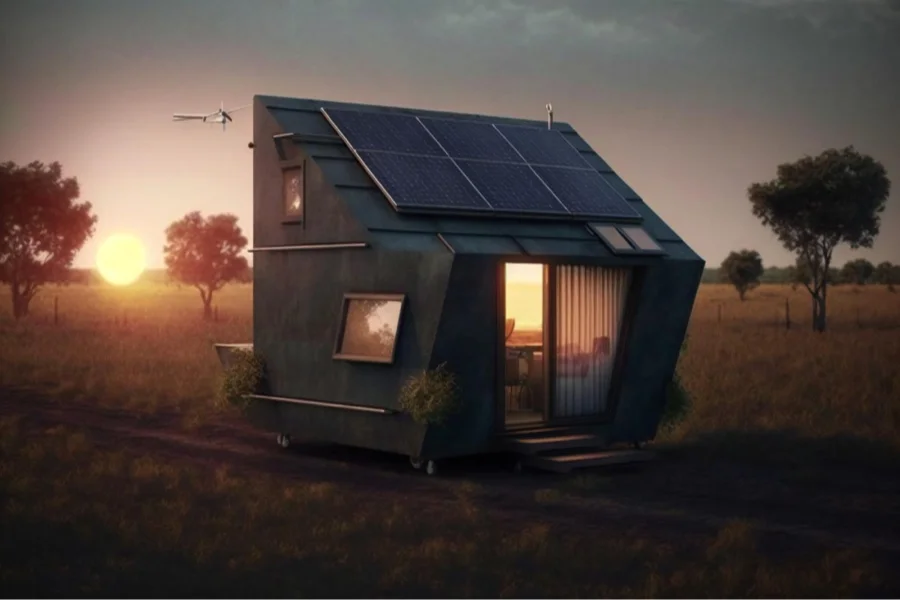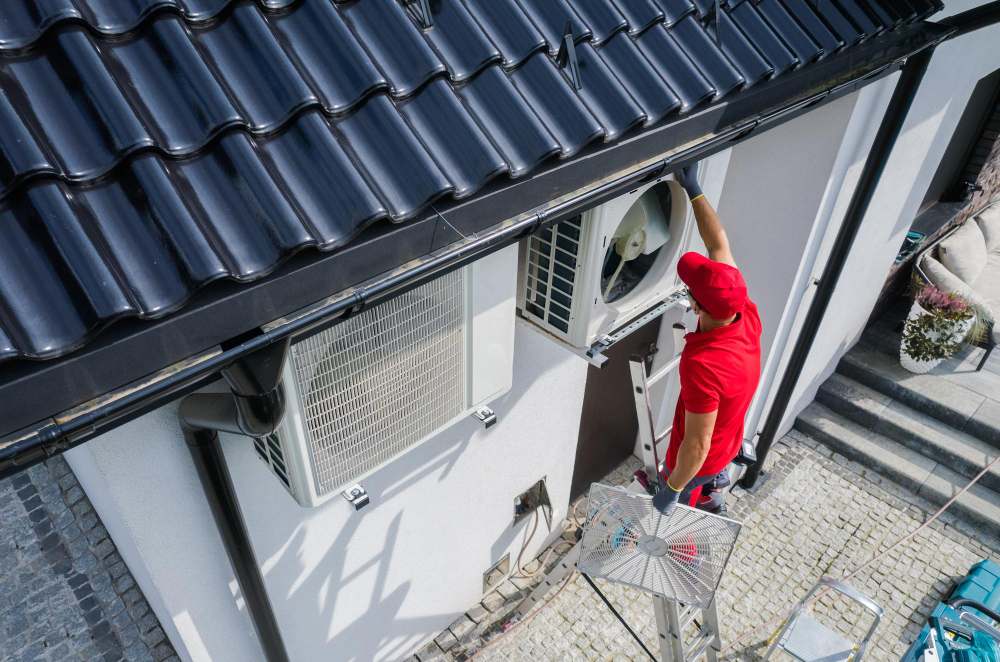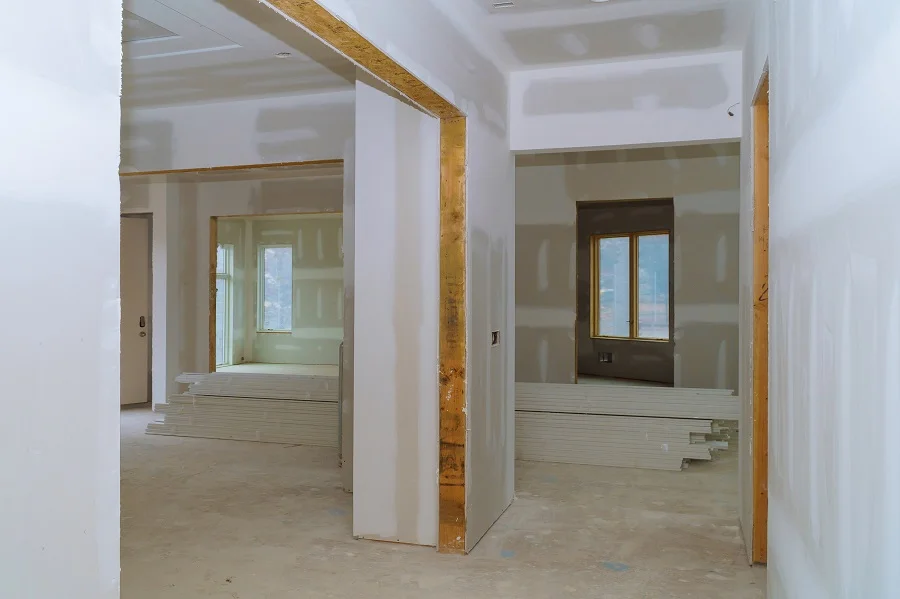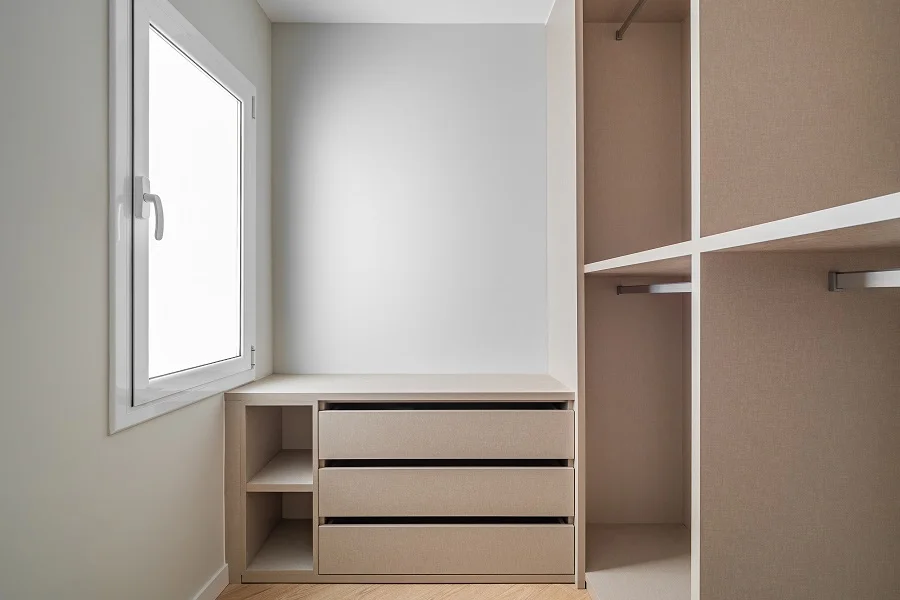Last updated on
In recent years, the conversation around mental health has expanded to include various factors contributing to well-being, from diet and exercise to social connections and environmental influences.
One area that has gained attention is the impact of the living environments on mental health, particularly the role of clutter. It is believed that the spaces people inhabit can profoundly affect their mood, stress levels, and overall mental well-being.
This article explores the relationship between decluttering and mental health, offering insights into how creating a healthy home environment can be a decisive step toward improved psychological well-being.
The Psychological Impact of Clutter
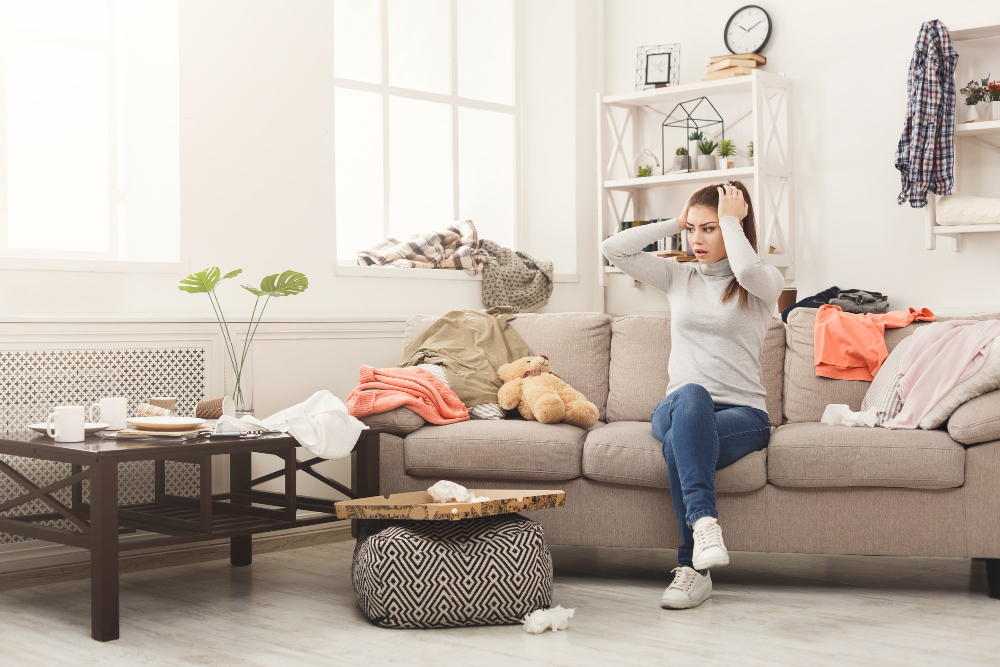
Clutter, defined as an excessive amount of items that create a disorderly and chaotic environment, can have a variety of negative effects on mental health. It can lead to increased stress, anxiety, and feelings of overwhelm, making it difficult for individuals to relax or focus in their own homes.
The visual chaos of clutter signals to the brain that there is unfinished work, contributing to unrest. Also, clutter can hinder productivity by making finding items and navigating spaces harder, leading to frustration and wasted time.
Moreover, for individuals who struggle with hoarding behaviors, clutter can reach levels that severely impact their quality of life. Hoarding is characterized by the excessive collection of items, even if they are of no value, and the inability to discard them. This can create living conditions that are mentally distressing and physically unsafe.
In such cases, specialized junk removal strategies for hoarders can be a crucial step toward recovery. These strategies involve sensitive and professional assistance to help hoarders declutter their homes safely and effectively, respecting their emotional connection to their possessions while progressing toward a healthier living environment.
The Therapeutic Process of Decluttering
Decluttering is a holistic journey towards mental clarity and emotional liberation. This therapeutic venture encourages individuals to delve deep into their belongings, meticulously evaluating each item’s place in their lives. The transformation of a cluttered area into an organized, visually appealing environment is not just a physical change but a mental triumph. Some therapeutic benefits of this intentional practice include:
- Empowerment: Individuals take charge of their environment, making proactive choices about what stays and what goes.
- Achievement: Completing decluttering tasks provides a tangible sense of accomplishment, enhancing self-esteem.
- Calmness: A tidy space promotes tranquility, reducing stress and fostering relaxation.
- Mindfulness: The decluttering process encourages present-moment awareness, making space for reflection and intentional living.
- Aesthetic Pleasure: An organized space is visually comforting and can be a source of joy and pride.
Through decluttering, people can reshape their surroundings and pave the way for a more mindful, serene, and empowered life.
The Social Benefits of a Decluttered Space

The impact of decluttering extends beyond the individual to affect social interactions and relationships. A cluttered home can be a source of embarrassment, leading to social isolation and a reluctance to invite others into the space.
On the other hand, a decluttered and welcoming home can encourage socialization and strengthen connections with friends and family. Hosting gatherings becomes less stressful, and the home becomes a place of shared experiences and memories.
The Connection Between Physical Space and Mental Space
The state of the physical environments often reflects and influences the state of the mental environments. A cluttered home can lead to a cluttered mind, where anxiety and stress can flourish. Conversely, a clean and orderly space can promote peace and mental clarity.
By decluttering, individuals can create a physical space that supports rather than detracts from their mental well-being. This does not mean that a home must be minimalist or devoid of personal touches; rather, it should be curated to bring joy and serenity to the inhabitants.
The Role of Habit Formation in Maintaining a Healthy Home
Decluttering is not a one-time event but a continuous process involving changing habits and consistently trying to create a healthy home environment. This includes developing routines for regular cleaning and organization and adopting mindful consumption habits to prevent the accumulation of unnecessary items.
By integrating these practices into daily life, individuals can ensure that their home remains a sanctuary that supports their mental health.
The Takeaway
As people continue exploring the various factors contributing to mental well-being, the importance of living environments cannot be overstated. Decluttering offers many benefits, from reducing stress and anxiety to fostering a sense of control and accomplishment.
By creating a healthy home, individuals can support their mental health and enjoy a higher quality of life. As this field of study evolves, it is clear that the spaces people inhabit play a crucial role in their overall well-being, underscoring the need for thoughtful consideration of how they organize and maintain their homes.
Related reading:
Table of Contents
